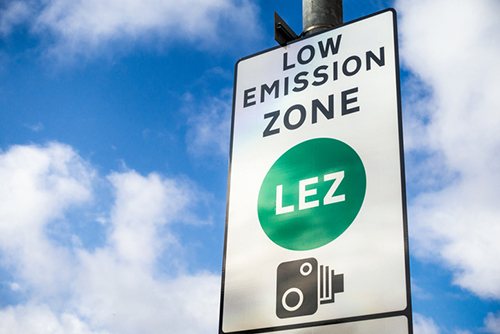New research finds that the Low Emission Zone (LEZ) in London has led to an improvement in Key Stage 2 test scores

New research conducted by the Grantham Research Institute on Climate Change and the Environment has found that since the Greater London LEZ was introduced in 2008, students within the zone, have experienced a meaningful improvement in Key Stage 2 test scores.
The authors state that the “magnitude of this effect is similar to reducing class size by 10 students or paying teachers large financial bonuses, and almost equivalent to significantly increasing average teacher quality.”
‘Putting Low Emission Zones (LEZs) to the test: the effect of London’s LEZ on education’, also details how LEZ “has larger positive effects in low-performing schools, demonstrating its potential to significantly reduce educational disparities.”
Utilising data from the National Pupil Database, the researchers show that primary schools within the LEZ experienced a meaningful improvement in Key Stage 2 test scores – an average 0.09 standard deviation improvement relative to a control group located across 20 other cities in England. Assessments taken at age 10/11 at the end of Key Stage 2 serve as a crucial benchmark in England and Wales for evaluating students’ academic progress at the end of their primary education.
The authors confirmed that the “benefits were disproportionately greater in schools serving a larger share of economically disadvantaged populations” This indicates that the LEZ can and has played a critical role in levelling the educational playing field and supporting vulnerable communities, with knock-on impacts on labour market opportunities.
The Greater London LEZ was introduced in 2008, using pricing and fines to disincentivise the use of highly polluting vehicles across almost all of Greater London, which has a population of 9 million people over approximately 1,600 square kilometres. Similar LEZs have been implemented in many cities around the world as a way of tackling the problem of air pollution by restricting road traffic.
Despite the well-documented link between air pollution and educational achievement, which operates partly through impacts on cognition, there has been no thorough evaluation of the effect of LEZs on exam results.
The research also mentions that the “positive effect appears to increase over time, suggesting that prolonged reductions in pollution concentrations yield increasingly significant improvements in educational outcomes.”
LEZ is targeted at heavy diesel vehicles such as lorries, big vans, and coaches and ULEZ is aimed at petrol and diesel vehicles that don’t meet the Euro 4 and Euro 6 vehicle standards.
ENDS
Notes to editors
- This is an independent study and was not commissioned by the Greater London Authority.

